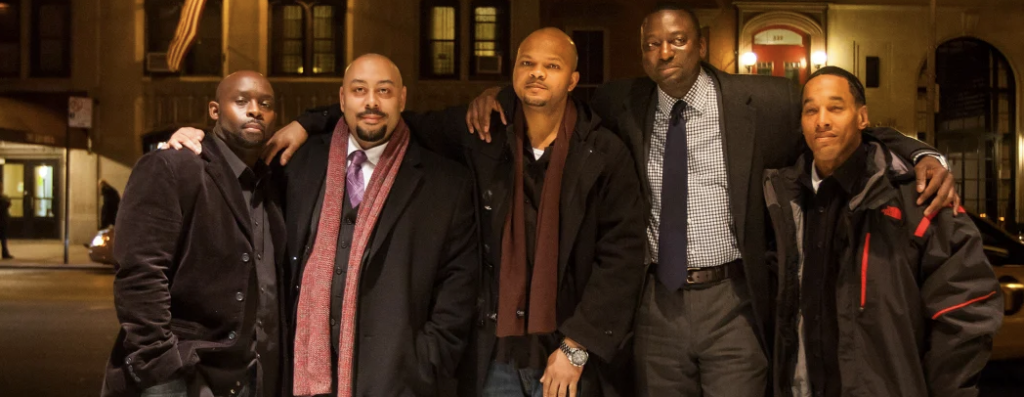
While I was working on demagoguery, I was continually puzzled by the problem of anti-intellectualism. The problem matters because, too often, we characterize demagoguery in ways that we would never recognize if we’re getting suckered by it. We tell ourselves that demagogues are frauds, dishonest, and manipulative, but our leaders and pundits are sincere, truthful, and authentic. Sure they have to lie sometimes, but they aren’t lying out of a place of dishonesty–it’s out of sincere concern, it’s necessary, and they’re basically truthful. Supporters of even the most notorious demagogues believed that they weren’t supporting demagoguery because they believed that Hitler, Theodore Bilbo, Fidel Castro, Joseph McCarthy, Cleon were sincere, truthful, and authentic.
In general, I think it makes more sense to emphasize the culture of demagoguery, since the people we identify as demagogues were only able to come to power because the culture rewards demagoguery.
Demagoguery says that we don’t really face complicated issues of policy deliberation in a community of divergent and conflicting values, goals, and needs about issues that don’t have perfect answers. It says that things just look complicated—they’re actually very simple. We just have to commit to the obvious solution; that is, the solution that is obvious to our side.
That insistence on the solution being obvious, on disagreement and deliberation as unmanly dithering, can look like anti-intellectualism since it means the rejection of the kind of nuance and uncertainty generally considered central to science or research. But I’m not sure it’s useful to call it anti-intellectualism, since people rarely think of themselves as anti-intellectual. Like emphasizing the honesty/dishonesty of demagogues, talking about the anti-intellectualism of demagoguery means we won’t identify our own demagoguery.
It’s true that demagoguery often relies on rejecting experts as “eggheads” or, in Limbaugh’s phrase, “the liberal elite.” That quality of anti-elitism often means that scholars characterize demagoguery as a kind of populism (e.g., Reinhard Luthin). But lots of populism isn’t demagogic, and rhetoric in a democracy is of course going to attack some elite group–the super-rich, the military-industrial complex, Fat Cat Bankers. After all, major changes will be to disadvantage of someone.
In addition, we don’t like to see ourselves as crushing some weak group; we like the David and Goliath narrative. The narrative of the spunky underdog fighting a massive power is so mobilizing that it’s often used under ridiculous circumstances. To condemn populism, therefore, just condemns rhetoric.[1]
As Aristotle pointed out, the elite can engage in demagoguery. Earl Warren’s demagoguery regarding “the Japanese” was directed toward Congressional representatives, and he was presenting himself as an expert summarizing the expert judgment of others. Harry Laughlin’s demagogic testimony before Congress regarding the supposed criminality and mental incapacity of various “races” was expert testimony–experts can be full of shit, as he was.[2] I think there is a different way of estimating expertise, but I’ll get to that in a bit.
At one point, I started to think that demagoguery simplifies complicated situations, and I still think that’s more or less true, but in a deceptively complicated way. Demagoguery can have very complicated narratives behind them, so complicated that they’re impossible to follow (because they don’t actually make sense). QAnon, 9/11 conspiracies, Protocols of the Elders of Zion, conspiracy theories about Sandy Hook–they’re the narrative equivalent of an Escher drawing (conclusions are used as evidence for conclusions that are used as evidence for the first conclusions).
They’re often complicated narratives, in that they might have a lot of details and data, but they’re in service of a simple point about which one is supposed to feel certain: the out-group is bad, we are threatened with extermination[3], and any action we take against them is justified because they’re already doing worse or they intend to. So, the overall narrative is simple: we are good; they are evil.
Or, perhaps more accurately, the overall narrative is clear and provides us with certainty. Demagoguery equates certainty with expertise. Experts are certain; demagoguery doesn’t reject expertise, then, let alone precision, but it does reject any “expert” opinion that talks in terms of likelihood. Demagoguery relies on the binary of certain/clueless.
Thus, in a demagogic culture, certainty (sometimes framed as “decisiveness”) is seen as real expertise, the kind of expertise that matters.
Demagoguery tends to favor the notion of “universal genius”–the idea that judgment is a skill that applies across disciplines. So, someone with “good judgment” can see the truth in a situation even if they aren’t very knowledgeable. “Good judgment” is (in this model) not discipline specific (so someone with a PhD in mechanical engineering might be cited as an expert about evolution because he’s a “scientist”).
What I’m saying is that there are five qualities that contribute to demagoguery that we’re tempted to call “anti-intellectualism:” 1) the rejection of uncertainty; 2) the related rejection of deliberation; 3) the emphasis on narratives that are, in their end result, simple (we’re good and they’re bad); 4) faith in “universal genius;” 5) the equation of expertise with decisiveness.
Our impulse when arguing with someone who is promoting a debunked set of claims is to say “It’s been debunked by experts.” But that doesn’t work because it hasn’t been debunked by the people they consider experts. Similarly, it doesn’t help to say that they “reject facts.” They think they don’t–they think we do. (And we do, in a way–we reject data, some of which might be true.) I’m not sure how to persuade someone promoting false information that it’s false, but I’m increasingly coming to think that we’ll be running in place as long as we’re in a culture of demagoguery.
We need a conversation about certainty.
[1] I think there is a kind of populism that is toxic, and it’s the kind that Muller and Weyland each call “populism.” I think it’s more useful to call that kind of populism “populist demagoguery” or, as do Berlet and Lyons, “toxic populism.”
[2] I talk about these cases a lot more here.
[3] When I say this, many people focus on the “extermination” part, as though I’m casting doubt on whether groups sometimes face extermination. I’m not. As a side note, I’ll say that I’ve long noticed that people who live and breathe demagoguery have trouble noticing restrictive modifiers, especially if they’re left-branching or the modifier isn’t immediately obviously meaningful to them. That’s a different post, but the short version is that a person who thinks demagogically will read “Zionist Christianity is not necessarily a friend to Israel” as a claim about Christians, not a very specific kind of Christian.
Yes, unhappily, many groups face(d) extermination, but the situation isn’t zero-sum between only two groups. Something that hurt the Nazis didn’t necessarily help the Jews; Jews had potential allies among groups that were neither Jewish nor Nazi; there were, and had long been, disagreements within the Jewish communities in Europe as to how to respond to anti-semitism. Even now, it’s hard to say what would have been “the” right response because there probably wasn’t only one right response.
[2] People not engaged in demagoguery aren’t obligated to argue with every person who disagrees with them, but if we reject every opposition argument on the grounds that simply disagreeing means someone is bad, then it’s demagoguery.


